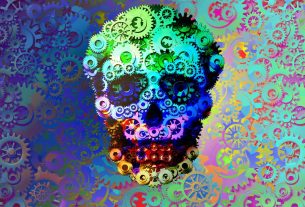Carbonated energy drinks with loads of caffeine are increasingly popular in Israel (judging from the number of cans thrown on sidewalks because users don’t have enough energy to deposit them for recycling). Now, South Korean researchers who studied over 2,000 American children aged nine and ten found that drinking caffeinated soda could lead to a higher risk of alcohol consumption in the future.
Pediatricians and parents in various countries are calling on health authorities to treat the new high-caffeine energy drinks like alcohol and cigarettes and ban their sale to minors – a single serving can contain as much caffeine as six cans of cola.
Published in the peer-reviewed journal Substance Use & Misuse under the title “Caffeinated Soda Intake in Children Is Associated with Neurobehavioral Risk Factors for Substance Misuse,” the results of the study also showed that daily drinkers of caffeinated soda were more impulsive and have a poorer working memory (for example, remembering a short sequence of numbers for a few minutes). The findings took into consideration other factors such as family history of drug use and low levels of parental education.Although strong associations between caffeinated beverage consumption and future substance use have been well documented in adolescence and adults, the Korean team’s findings are the first to show similar results in young children. In teens, previous research has shown that those regularly drinking energy drinks are five times more likely to use alcohol or marijuana within one to two years.
This new paper used data from the Adolescent Brain Cognitive Development (ABCD) Study, the large longitudinal study of brain development and child health in the US. The results showed that both high impulsivity and low working memory were significantly associated with daily caffeinated soda consumption.
Health effects of soft drinks
Youngsters who regularly drank caffeinated soda also showed distinctly different brain activity compared to their non-drinking peers. For example, when performing an impulse-control task, daily drinkers showed lower activity in a brain region called the anterior cingulate cortex. Reduced activity in the ACC is frequently observed in children with attention deficit hyperactivity disorder (ADHD) and people with substance use disorders.
Taken together, these findings strongly suggest an association between daily caffeinated soda consumption and low working memory and high impulsivity, which are themselves recognized as risk factors for substance use disorders.
“Our findings suggest that daily consumption of caffeinated soda in children is predictive of substance use in the near future,” lead author and psychologist Mina Kwon of Seoul National University explained. “One possible explanation is that caffeine and sugar could induce a toxicological effect on the brain, making the individual more sensitive to the reinforcing effects of harder drugs like alcohol.”
This is known as the “gateway hypothesis,” but an alternative theory known as the “common liability hypothesis” is also possible.
The idea behind this theory is that children who are naturally less able to regulate their impulses are more likely to seek out and try substances like caffeine at an early age. Then as they get older and it becomes easier to access illicit substances, they may progress onto harder drugs like alcohol.Prof. Woo-Young Ahn, who is director of the computational clinical science lab at the university, commented that “our results have important implications for public health recommendations, as our study provides novel insight into the neurobehavioral correlates of caffeinated soda consumption in children, which has rarely been evaluated.
“It’s vital to develop evidence-based recommendations for caffeinated soda consumption in minors,” he said. “There is no consensus on a safe dose of caffeine in children, and some of them may be more vulnerable to adverse effects associated with frequent caffeine consumption than others.”


